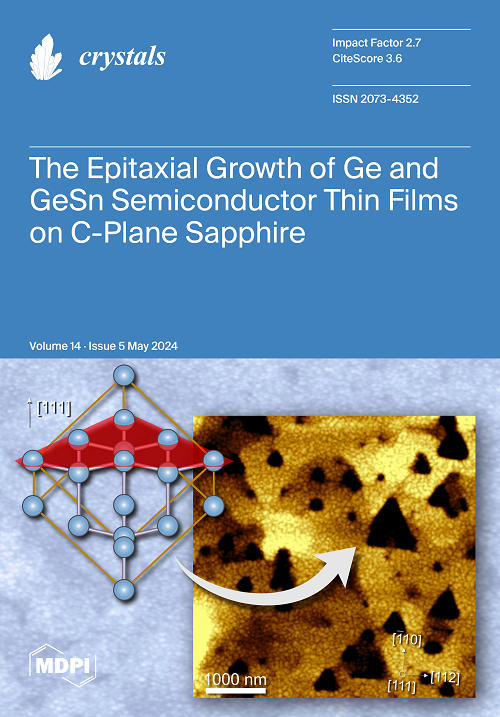玻璃和液体压缩的一般趋势
IF 2.4
4区 材料科学
Q2 CRYSTALLOGRAPHY
引用次数: 0
摘要
本研究将硅酸盐玻璃和熔体的等温体积与其化学成分的合并离子体积联系起来。这种关系是对晶体氧化物、硅酸盐、铝硅酸盐和其他以 O2- 作为组成阴离子的材料已建立的关系的扩展。该关系提供了对键配位的约束,指出了熔体和玻璃中配位的压力诱导变化以及原子间距离,并量化了压力诱导配位变化中过渡区域的范围。本文章由计算机程序翻译,如有差异,请以英文原文为准。
General Trends in the Compression of Glasses and Liquids
The present work relates the isothermal volumes of silicate glasses and melts to the combined ionic volumes of their chemical constituents. The relation is an extension of a relation that has already been established for crystalline oxides, silicates, alumosilicates, and other materials that have O2− as a constituent anion. The relation provides constraints on bond coordination, indicates pressure-induced changes in coordination in melts and glasses and interatomic distances, and quantifies the extent of transitory regions in pressure-induced coordination changes.
求助全文
通过发布文献求助,成功后即可免费获取论文全文。
去求助
来源期刊

Crystals
CRYSTALLOGRAPHYMATERIALS SCIENCE, MULTIDIS-MATERIALS SCIENCE, MULTIDISCIPLINARY
CiteScore
4.20
自引率
11.10%
发文量
1527
审稿时长
16.12 days
期刊介绍:
Crystals (ISSN 2073-4352) is an open access journal that covers all aspects of crystalline material research. Crystals can act as a reference, and as a publication resource, to the community. It publishes reviews, regular research articles, and short communications. Our aim is to encourage scientists to publish their experimental and theoretical results in as much detail as possible. Therefore, there is no restriction on article length. Full experimental details must be provided to enable the results to be reproduced. Crystals provides a forum for the advancement of our understanding of the nucleation, growth, processing, and characterization of crystalline materials. Their mechanical, chemical, electronic, magnetic, and optical properties, and their diverse applications, are all considered to be of importance.
 求助内容:
求助内容: 应助结果提醒方式:
应助结果提醒方式:


